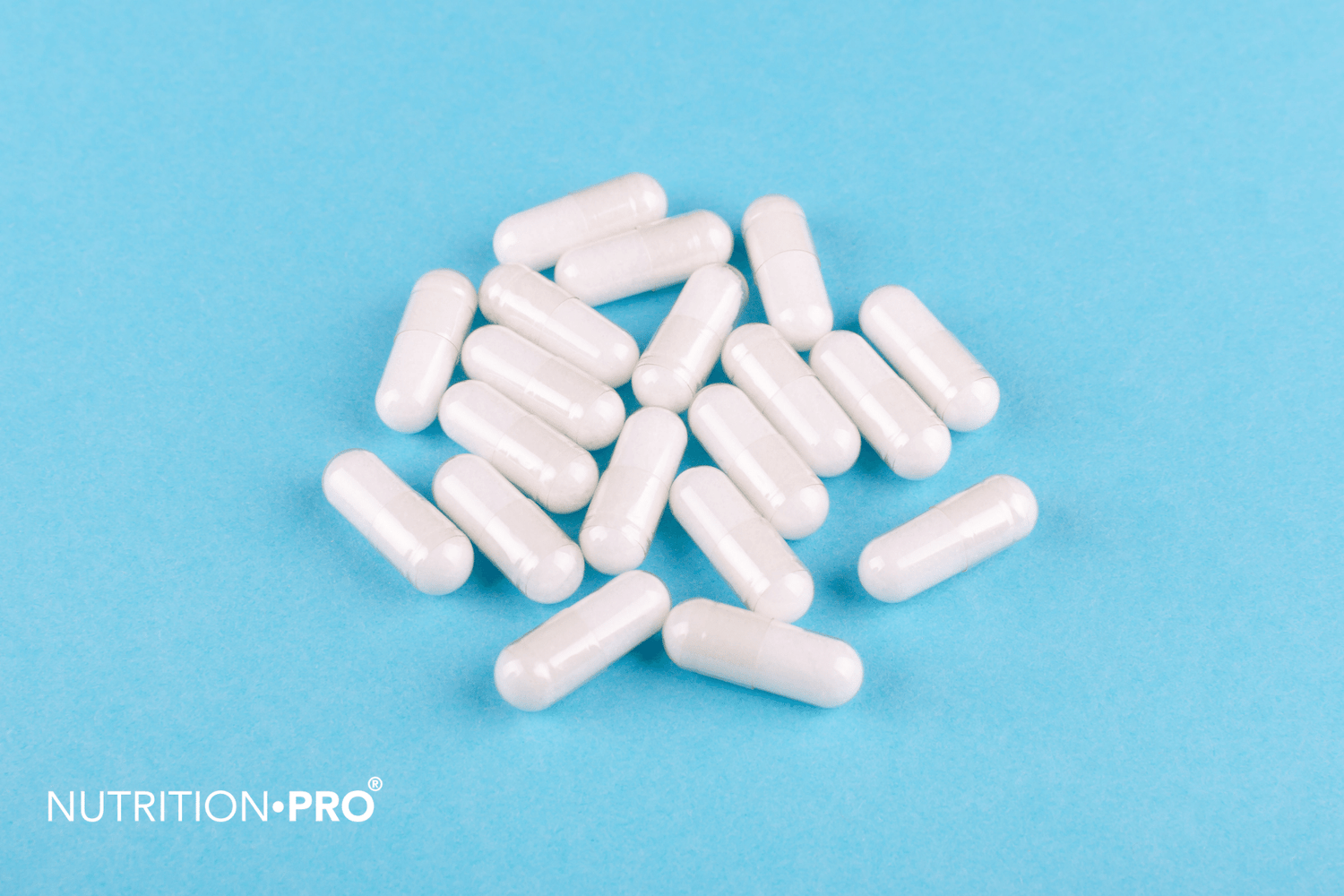Probiotics have recently received a lot of attention.
These living organisms have been credited with providing all sorts of health benefits related to bowel function and beyond .
If you want to use them to improve your health, it's important to make sure you're taking the right probiotic supplements to get the results you're looking for.
This article examines the effects of probiotics in detail and provides recommendations for supplements that address specific health concerns.
What are probiotics?
Your gut contains bacteria acquired at birth and later in a process called colonization.
Many of these bacteria are considered beneficial or "friendly". Their functions include converting fiber into short-chain fatty acids, synthesizing certain vitamins, and supporting your immune system .
taking probiotics can help increase the number of these healthy bacteria.
The formal definition of probiotics is “live microorganisms which, when administered in adequate amounts, confer a health benefit on the host” .
Basically, probiotics are microorganisms that provide beneficial effects when you consume them in the right amounts.
Probiotics can be taken in supplement form or in fermented foods such as sauerkraut, kefir and yogurt.
They should not be confused with the prebiotics , which are types of fiber that serve as a food source for bacteria living in your colon.
Some probiotics have specific benefits
Your gut microbiota, or intestinal flora, is made up of a wide variety of bacteria.
Its exact composition is unique to you.
Your colon contains billions of bacteria with types from over 500 different species .
Probiotics that have been shown to benefit health include various strains of Bifidobacterium , Lactobacillus and Saccharomyces .
Many probiotic supplements contain a combination of different strains in the same supplement.
Research has shown that certain strains seem to be more effective than others at treating certain conditions.
Therefore, you are more likely to get good results from taking probiotics that have been shown to produce specific effects, such as controlling diarrhea.
In addition, it is important to consume enough probiotics .
Probiotics are usually measured in colony forming units (CFU). Generally, higher doses have given the best results in most studies.
However, some probiotics may be effective at doses of 1-2 billion CFU per day, while others may require at least 20 billion CFU to achieve desired effects.
Taking extremely high doses has not been found to be harmful. One study gave participants up to 1.8 trillion CFU per day. However, it's expensive and doesn't seem to offer any additional benefits .
Importantly, scientists still don't know everything about probiotics . Although research has grown rapidly over the past few years, there is still much to explore.
Probiotics that help you lose weight
There is growing evidence that the balance of bacteria in your gut can profoundly affect your body weight .
Some studies suggest that taking probiotic supplements may be helpful in losing weight and achieving a healthier body composition.
Animal and human studies have shown that certain strains of bacteria can decrease the amount of fat and calories absorbed by your gut , promote a healthy balance of gut bacteria, and reduce weight and belly fat .
According to a 2014 analysis of several studies, probiotics that are effective for fat loss include Lactobacillus gasseri , Lactobacillus rhamnosus and the combination of Lactobacillus rhamnosus and Lactococcus lactis .
In another study, obese women who took L. rhamnosus for three weeks lost twice as much weight as those who received a placebo.
Additionally, they continued to lose weight during the maintenance phase of the study, while the placebo group gained weight .
Taking probiotic supplements can also help limit weight gain during times of high calorie intake.
In a four-week study, skinny young men consumed 1,000 excess calories per day. Those who took the VSL#3 probiotic formulation gained less weight than the control group!
Probiotics to boost immunity
Studies suggest that taking probiotic supplements can alter the balance of gut bacteria in a way that increases your body's defenses against allergies, infections, and cancer .
Of particular note are the strains Lactobacillus GG , Lactobacillus crispatus , Lactobacillus gasseri , Bifidobacterium bifidum and Bifidobacterium longum .
These types of bacteria appear to reduce the risk of respiratory diseases and eczema in children, as well as urinary tract infections in adult women .
Additionally, probiotics have been shown to reduce inflammation , a known risk factor for many diseases.
In one study, older adults consumed a mixture of Lactobacillus gasseri , Bifidobacterium bifidum and Bifidobacterium longum or a placebo for three weeks each.
After taking probiotic supplements , their inflammatory markers decreased, anti-inflammatory markers increased, and gut bacteria counts became more similar to those seen in young, healthy people .
Certain probiotics can also help prevent gingivitis or gum infection.
A 14-day study involved adults who refrained from brushing and flossing while being treated with Lactobacillus brevis or a placebo.
Gingivitis progressed faster in the placebo group, suggesting that the probiotics helped protect against infection .
Probiotics That May Improve IBS Symptoms
Sometimes the main symptoms of IBS are not related to stool consistency or frequency. Instead, some people regularly experience bloating, gas, nausea, and lower abdominal pain.
A review of 19 studies found that while some people reported improvement in IBS symptoms while taking probiotics , results varied between individuals. The researchers could not determine which probiotics were the most effective .
Additionally, because IBS symptoms are so diverse, sometimes one symptom improves while others do not.
For example, a study in people with constipation-predominant IBS found that although S.cerevisiae improved constipation, it did not have much effect on abdominal pain or discomfort .
In another study, participants with diarrhea-predominant IBS were given a supplement called VSL#3, which contains strains of Lactobacillus , Bifidobacterium and Streptococcus .
Bowel movement frequency and consistency did not improve, but bloating did .
Effective probiotics against diarrhea
Diarrhea is defined as loose to watery stools that occur more frequently than normal.
It is usually short-lived, but can become chronic in some people.
Probiotics have been found to reduce stool frequency in infection-related diarrhea that occurs with food poisoning and gastroenteritis, commonly known as “stomach flu” .
A large review of 34 studies found that probiotics reduced the risk of diarrhea from various causes by 34% .
Effective strains included Lactobacillus rhamnosus GG , Lactobacillus acidophilus and Lactobacillus bulgaricus .
Another common cause of diarrhea is the use of antibiotics. When antibiotic therapy kills the harmful bacteria causing the infection, the beneficial bacteria are also destroyed. The change in the bacterial balance can lead to a inflammation and diarrhoea.
Studies in children and adults have shown that taking probiotics can help reduce the diarrhea that can occur as a result of antibiotic treatment .
A large review of 82 controlled studies found that taking probiotic supplements reduced the risk of developing antibiotic-associated diarrhea by 42%. However, the most effective probiotic strains have not been discussed .
Although some people with IBS experience constipation, others experience frequent bouts of diarrhea, known as diarrhea-predominant IBS.
Research suggests that certain probiotics appear to be particularly effective against diarrhea-predominant IBS, including B. coagulans , S. boulardii and a combination of several strains of Lactobacillus and of bifidobacterium .
However, one study found no significant improvement in diarrhea in IBS patients treated with S. boulardii .
Probiotics That May Help Relieve Constipation
The constipation is characterized by difficult stools that are difficult to pass and infrequent. Everyone suffers from constipation from time to time, but in some people it becomes a chronic problem.
Chronic constipation is more common in older people and bedridden adults, although it can also occur in children.
Additionally, some people with irritable bowel syndrome (IBS) have persistent constipation as their primary symptom. This is called constipation-predominant IBS.
Conventional treatments include laxatives and stool softeners. However, in recent years, dietary changes and probiotic supplements have become increasingly popular alternative approaches .
A number of studies have shown that supplementation with certain probiotic strains can reduce constipation in adults and children .
In a study comparing probiotics and prebiotics in children with IBS, B. lactis has been shown to provide significant relief from constipation.
The probiotics group also experienced less belching, abdominal fullness, and bloating after meals than the prebiotic group .
Other probiotics that can ease constipation include B.longum , S.cerevisiae and a combination of L. acidophilus , L.reuteri , L. plantarum , L. rhamnosus and B. animalis .
Probiotics for general health
In addition to targeting specific diseases and conditions, you can also take probiotics to promote overall health.
A recent study in healthy adults showed that taking Bifidobacterium bifidum for four weeks helped stimulate the production of beneficial short-chain fatty acids .
There is also evidence to suggest that probiotics may promote better aging by reducing the inflammation that typically occurs as you age .
Of course, it's important to make sure you're eating a healthy diet and practicing other health-promoting behaviors as well. Otherwise, you can't expect probiotics to provide much benefit .
Also, while probiotics are safe for most people, they can harm people who are extremely sick or have weakened immune systems, including those who are HIV-positive or have AIDS .
The bottom line
Having a healthy gut microbiota is extremely important .
Although research is still emerging, probiotics appear to provide benefits for a number of different conditions and may also promote better overall health.
Taking the right kind of probiotics can help you target specific health issues and improve your overall health and quality of life.














